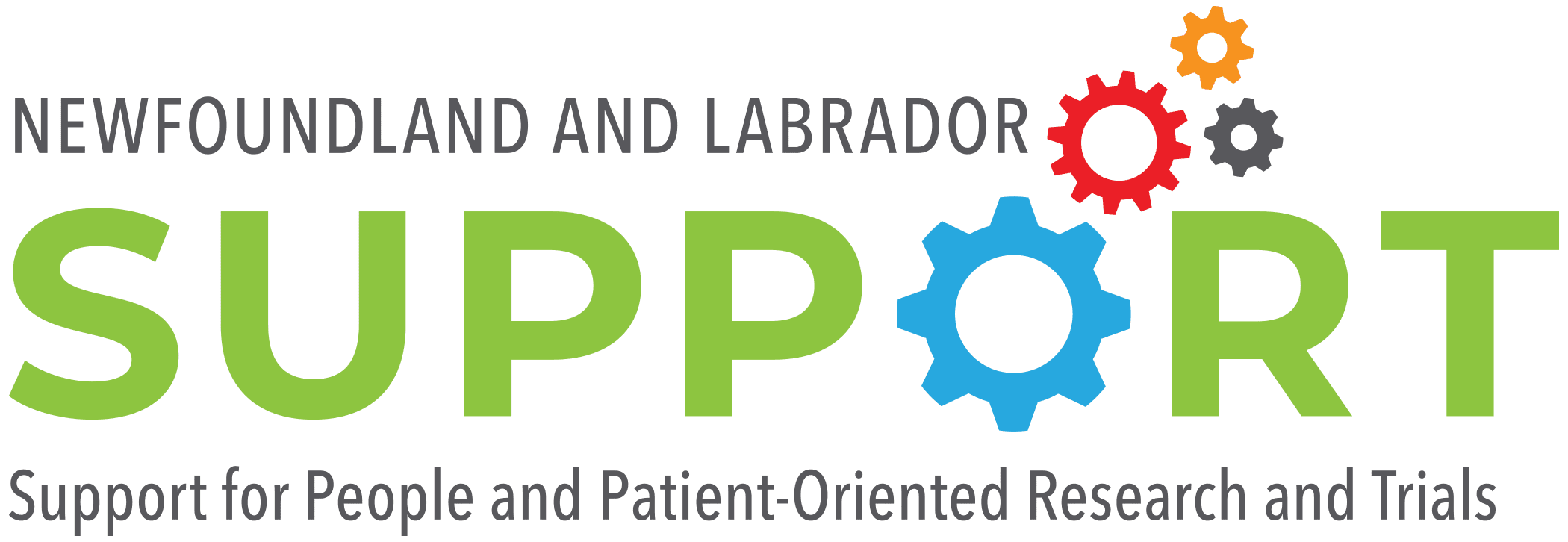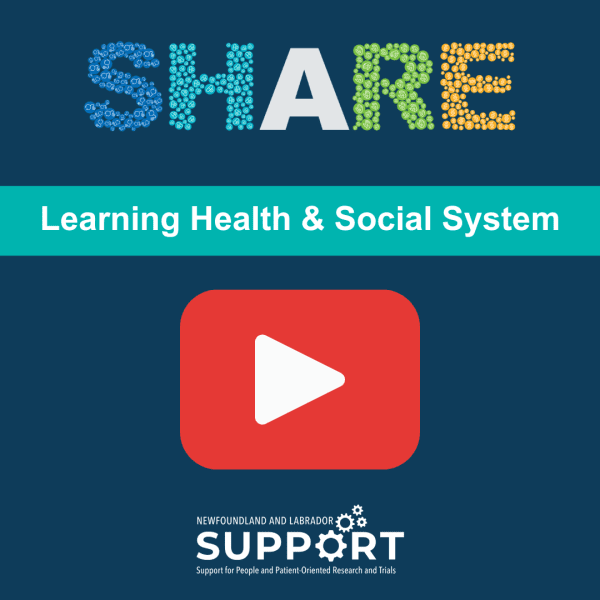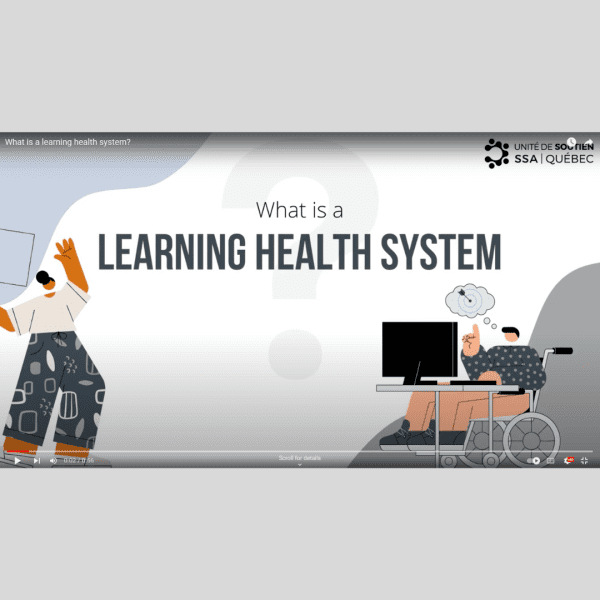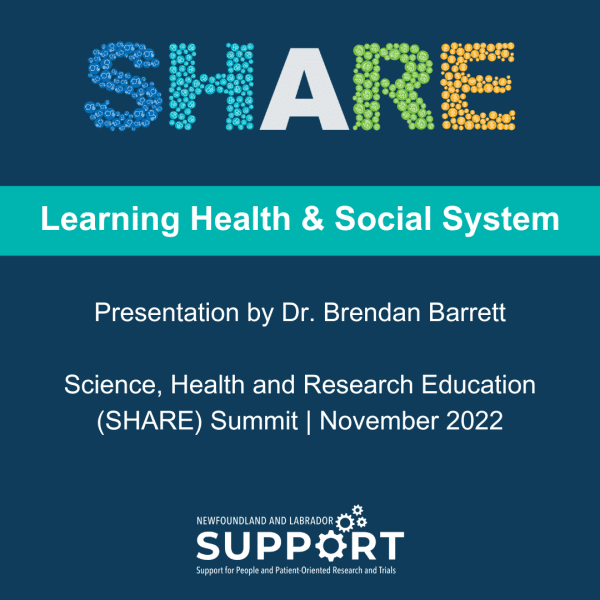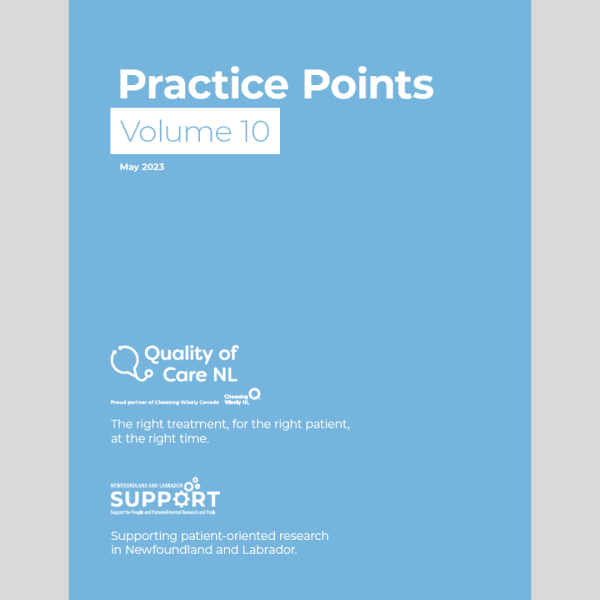What is a Learning Health & Social System?
One of the four core components of each of Canada’s SPOR SUPPORT Units is to support a learning health system which applies knowledge generated through research and data to improve health care practices, systems and patient outcomes.
NL SUPPORT has adopted the concept of a learning health and social system following the work of Health Accord NL, a task force which recommended 59 calls to action to transform health and health care in Newfoundland and Labrador.
Recognizing the role of the social system when it comes to improving health, Health Accord NL expanded on the concept of a learning health system by recommending the establishment of a comprehensive, effective, and sustainable learning health and social system.
As defined in the Health Accord NL Report, a learning health and social system is one in which science, education, informatics, incentives, and culture are aligned for continuous improvement, innovation, and equity. Best practices are seamlessly embedded in the delivery process, individuals and families are active participants in all elements, and new knowledge is generated as an integral by-product.
In other words, a learning health and social system continuously uses evidence and engages the community as partners to inform and improve policy, practice and outcomes.
A learning health and social system can be micro, meso or macro in scale. For example, a health care program, a hospital, and a national health care system can all be considered learning health systems, together and as individual entities.
In a learning health and social system, research influences practice and practice influences research.
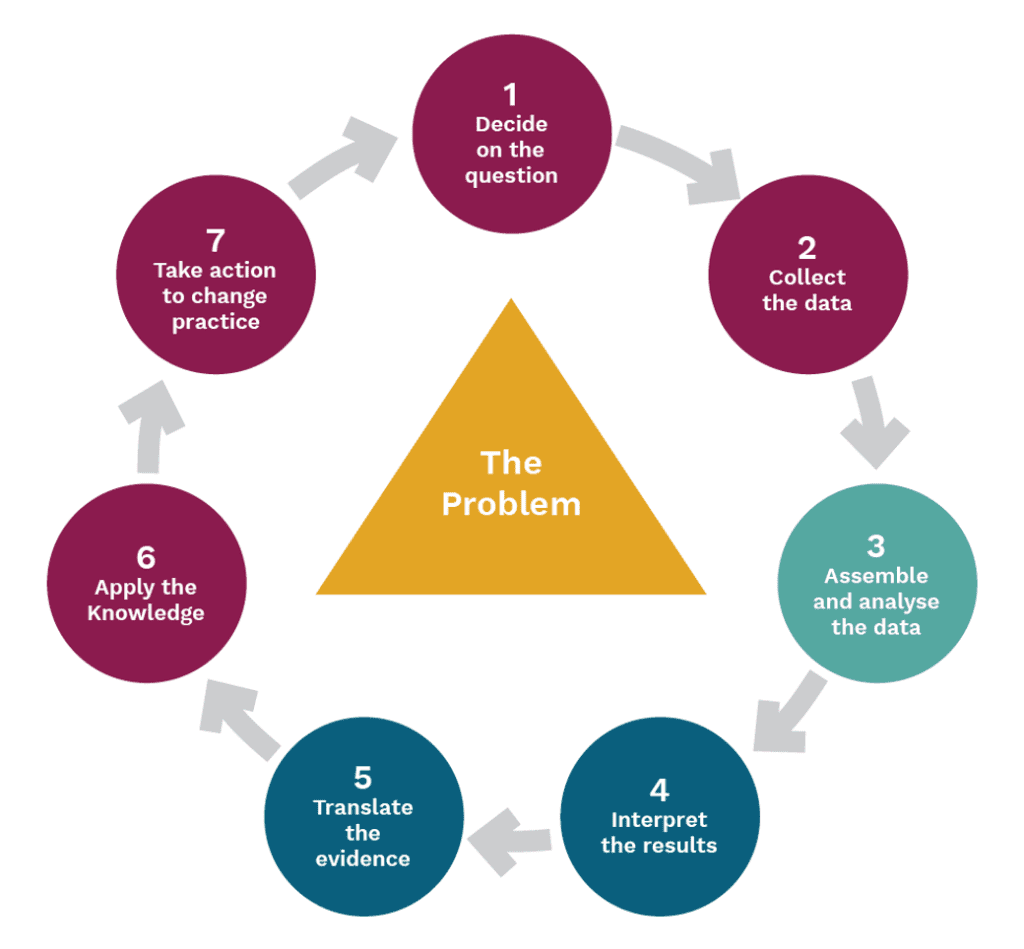
If you would like to learn more about the concept of learning health and social systems, please get in touch!
